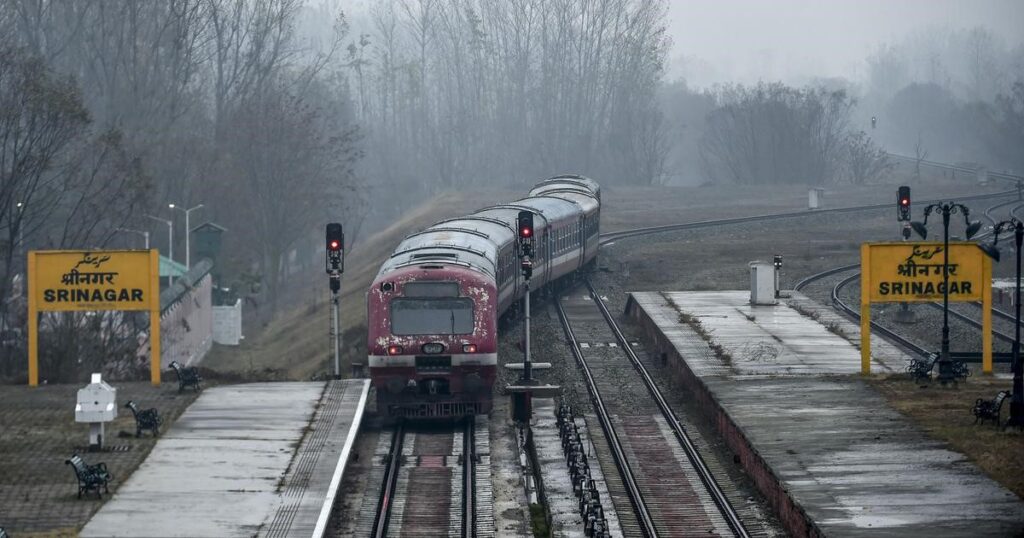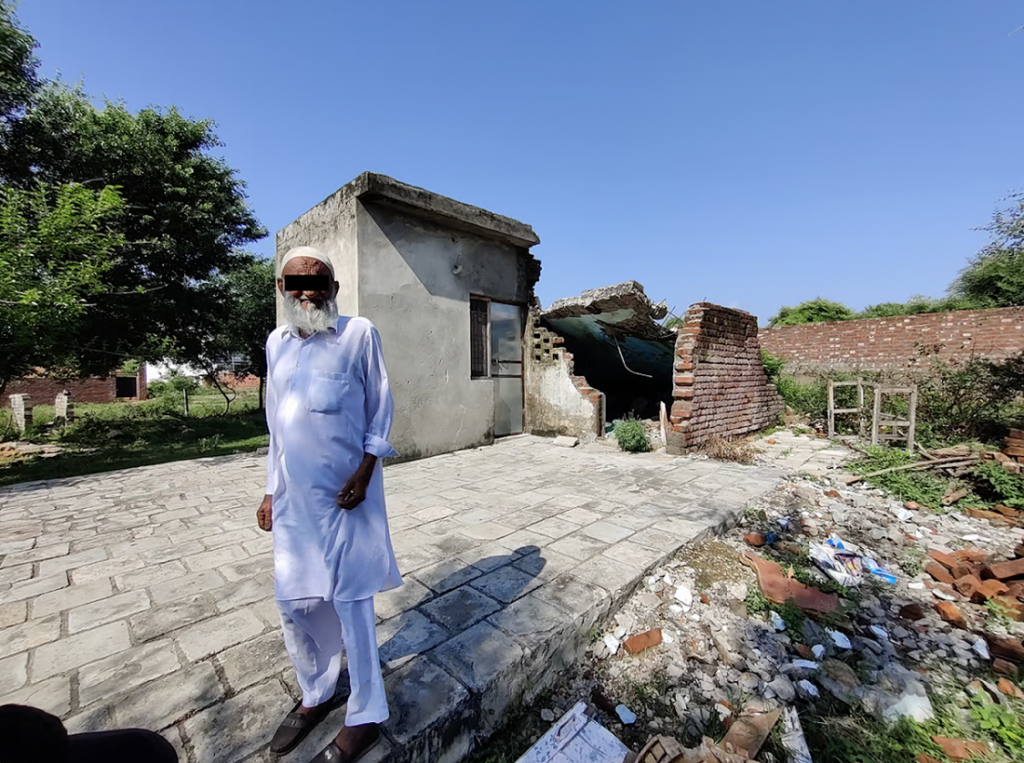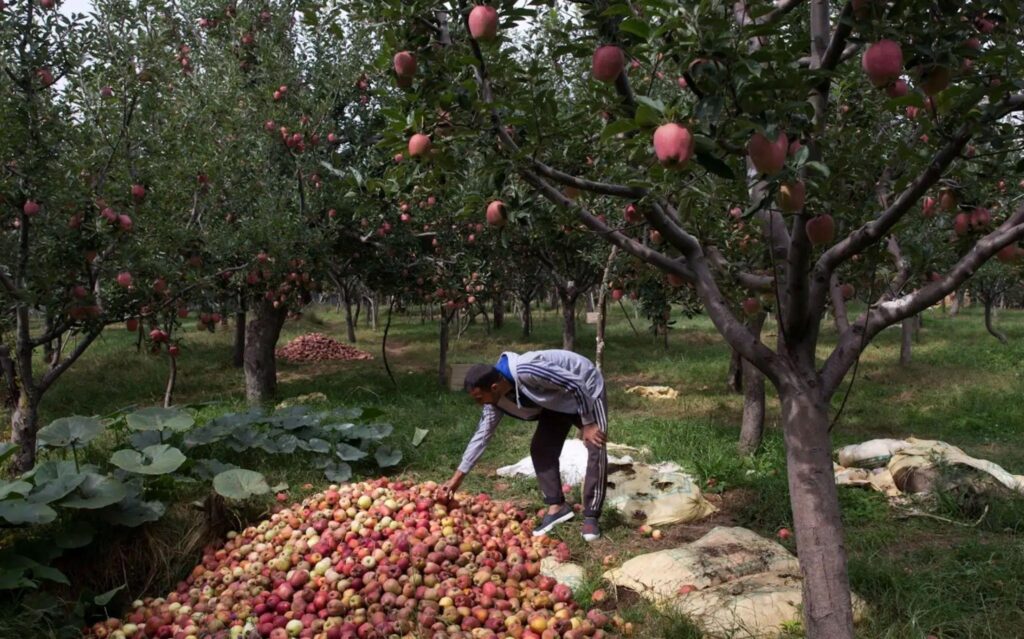April 19, 2024

The relationship between development and colonialism has been a close one throughout history. Development has been used by colonizers across the world to further dispossess indigenous communities of their land and resources, and build their economies and infrastructure for the benefit of the colonial power. Dispossessing Kashmiris of their land has been one of the main goals of its settler colonial project in Kashmir. Rapidly advancing towards this goal, a year ago, india first started with demolishing the houses of the Gujjar and Tribal community of Kashmir, in the name of reclaiming ‘state land’. This was later moved to main cities and towns, demolishing houses and forcing several Kashmiri families onto the streets during the harsh winter. This year, the indian government has launched massive ‘development’ projects in the form of railways and roads across the region.

What do these new projects entail:
One of these newly announced projects is the proposal to extend the indian railway line that is currently operating from Banihal to Baramulla on a single line, into other parts of Kashmir, thus creating multiple lines.
Another proposal is called the “Yatra Marg” or the “Pilgrimage Road” project. This entails laying down a 4-lane highway from Khanbal in district Islamabad to Chandanwor, near the Amarnath Cave, which has been a site of increased Hindu nationalist pilgrimage in recent years.
While the Indian government maintains that these projects will only benefit Kashmiris, this is not the case. The main Jammu- Srinagar “national highway” which was also converted into a 4-lane highway a few years ago has been a source of inconvenience for locals. This is because civilian traffic on this highway is stopped several times a day for several hours in order to allow the indian occupational forces to travel freely. The stopped traffic often includes ambulances and other essential service vehicles. This plays into psychological warfare with Kashmiris and at the same time indicates that the primary purpose of these infrastructure projects is for ease of militarisation of Kashmir. It will not be a surprise if these railway projects are also used in a similar manner.
The proposed railway project majorly cuts across rice fields and apple orchards in Shopian, Islamabad and Pulwama districts. Fruit growers of these areas have staged protests after indian officials started surveying their orchards to earmark land for the proposed railway line. Many people, including women, some of them crying bitterly, were part of these protests. “It has taken us decades to raise these apple orchards. They are the only source of our livelihood. We have told them (officials) categorically that we will not allow a railway line through our village,” said the head of a local village committee in Shopian. It takes around a decade of consistent monetary investment in the form of care and attention for an apple tree to reach its full potential.
Similarly, the Amarnath road project also cuts across rice fields and apple orchards, while at the same time proposing to build a 4-lane highway on a terrain that has already been flagged for devastating environmental disasters as a result of the pilgrimage.
The transportation will also be used to benefit Indian settlers and Indian tourists, who will be using these railway lines both for pilgrimage and tourist purposes.
Here is why this needs your attention:
“Most of the orchards being earmarked for this damned railway line are either 10-12 years old or 8-9 years old, therefore either just starting to help earn the farmers livelihood, or about to start”, says Zahid (name changed) a young apple farmer from Islamabad in an interview with Stand with Kashmir. He further adds that, “I used to run an internet business before 2019, and then in 2019 they sent us into a blackout for 6 months, forcing me to quit and start farming. Now 5 years down the line, they have come for my orchard. I don’t know what to do and how else to feed my family of 5”.
Another story is that of Nayeem (name changed). In 2016, Nayeem was arrested by the indian occupational forces and subjected to extreme torture. This led to severe Post-Traumatic Stress Disorder (PTSD) and Nayeem was unable to work any kind of job that involved working with other people. In his moment of desperation, Nayeem turned to rice and apple farming on his ancestral land. In 2020, he enrolled under the indian government’s High Density Apple Cultivation Scheme and instead of the traditional Kashmiri apples, he planted Italian variety apples on this land. While the government provided a 50% subsidy on the loan, Nayeem was to pay the rest as his orchard reached full potential in the 5th year, that is 2024. However, his is one of the many orchards in his village that has been marked under the Amarnath road project. “The only thing I can think of is killing myself and my family. I have spent all my resources, physical as well as monetary, on this orchard. If they take it away, I will have nothing left,” Nayeem told Stand with Kashmir. Nayeem’s story is one of the hundreds or even thousands of others who are affected by these projects across Kashmir.

In the name of developing infrastructure like roads and railways, the real goal is to dispossess Kashmiris of their biggest material resource, the land of Kashmir. It is no secret that india has had a longstanding problem with there being limited homeless people in Kashmir (in comparison to India), despite decades of occupation. This was even aired on a prime time news debate a few years ago where the anchors and the guest openly expressed surprise and concern at the lack of homeless people, hunger, farmer suicides, and malnourishment in Kashmir.
It is clear that according to the indian think tanks, Kashmir’s dependency on india for its food and shelter will disrupt the resistance movement. Since then, india has incentivized converting rice fields, which is the staple diet of Kashmiris, into high density Italian apple orchards, which are not indigenous to Kashmir. Traditional Kashmiri apple farmers lack the know how of how to care for these varieties and depend on indian institutions for guidance. At the same time, the indian state has moved to crush the apple economy by stranding fruit laden trucks on the Jammu – Srinagar highway and allowing a heavy influx of Iranian apples to drive down the rates of Kashmiri apples.
In combination with these moves, the current railway and road projects are aimed at dispossessing Kashmiris of all their resources and self-sufficiency, and in turn create a heavy dependency on the indian state. As development is weaponised to further colonial agendas, it is our responsibility to talk about and expose these sinister plans of the indian occupation in Kashmir.
Share this and follow StandWithKashmir across social media to remain connected with Kashmir.
Stay in touch with Stand with Kashmir.
Stand With Kashmir (SWK) is a Kashmiri-driven independent, transnational, grassroots movement committed to standing in solidarity with the people of indian-occupied Kashmir in ending the indian occupation of their homeland and supporting the right to self-determination of the pre-partition state of Jammu and Kashmir. We want to hear from you. If you have general inquiries, suggestions, or concerns, please email us at info@standwithkashmir.org.


Leave a Reply